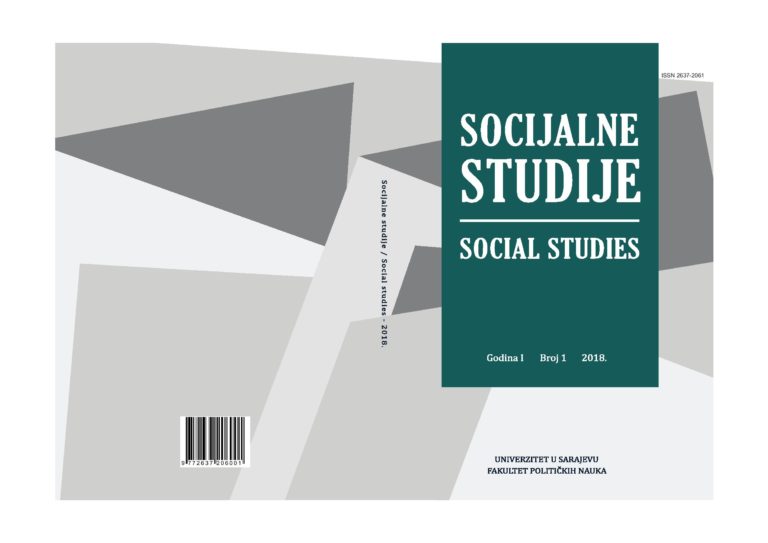SOCIJALNA POLITIKA U TRANZICIONIM DRUŠTVIMA: »VERE I ZAVERE NEOLIBERALIZMA«
SOCIAL POLICY IN TRANSITION SOCIETIES: “BELIEFS AND PLOTS OF NEOLIBERALISM”
Author(s): Aleksandar L. JugovićSubject(s): Public Administration, Government/Political systems, Welfare systems, Social development, Economic development
Published by: Fakultet političkih nauka - Univerzitet u Sarajevu
Keywords: Social policy; reform; transition societies; ideology; neoliberalism;
Summary/Abstract: The context of the social policy reform in transition societies is the period when the state creates a market system of the economy hindered by numerous social problems and when social policy is expected to be at the same time as efficient and cost-effective for the state as possible. The aim of this paper is to retrospectively analyze the ideological course and outcome of the social policy reform, with the hypothesis that this reform was part of a neoliberal project, yielding confusing and largely unsuccessful practical outcomes. The actuality of the revived interest in liberal thought and practice arose after the crisis of the “state of wellbeing” and the disappearance of socialist systems in Europe. The central notion of the entire liberal ideology is the idea of individual freedom as the source of the natural law of every human being. In (neo)liberal political practice and state there are numerous contradictions that can be clearly seen today, after the several-decade-long domination of this ideology in Western capitalist and post-socialist transitions to states and societies. First of all, it seems that the view of the conflict of the principle of freedom and the principle of distributive justice/state intervention in the social sphere easily leads to great social stratification and inequality. Although they believe in pluralism in the context of political freedoms, neoliberals are “suspicious” of democracy as the order of majority rule, as it may pose a threat to individual rights and constitutional freedoms. We can distinguish two main objectives of the social policy reform in transition societies: 1) system marketization through the multiplication of service providers and managerization in the governance of institutions, and 2) the individualization of the (potential) users’ responsibilities. The conceptualization and implementation of changes came under the significant influence of foreign experts, international organizations, as well as small, relatively closed monopolistic and political circles of domestic experts in economic and social politics, who created and introduced changes in the system or in its individual parts through project activities. In an ideological sense, the current state seems more like a turn to ideological neoconservativism with the confusion elements “what to do next?”.
Journal: Socijalne studije
- Issue Year: I/2018
- Issue No: 1
- Page Range: 42-56
- Page Count: 15
- Language: Serbian

